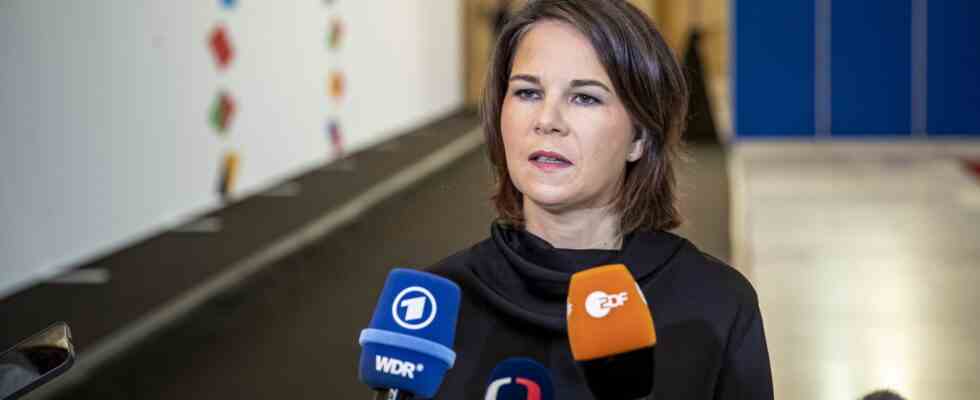Status: 08/31/2022 12:20 p.m
The EU has already launched seven packages of sanctions against Russia, and now another one is apparently to follow. That was indicated by Foreign Minister Baerbock. Russia’s oil source of income could be the focus again.
The German government is working to ensure that further sanctions are imposed on Russia as a result of the war of aggression against Ukraine. On the fringes of a meeting of EU foreign ministers in Prague, Federal Foreign Minister Annalena Baerbock announced that proposals had already been made for an eighth package of punitive measures.
However, the Green politician left it open which sanctions are up for debate. However, she emphasized that it is important to be able to maintain sanctions against Russia in the long term – an allusion to the internal EU dispute over the extent to which member states should decouple from Russian energy.
Germany is one of the countries that have set themselves the goal of independence from Russian energy resources, but cannot implement it immediately due to their high level of dependence.
Oil price cap as an option
But even with a possible eighth package of sanctions, the energy factor should again play a major role – in relation to the Russian business with oil exports. With countries like China or India, Russia still has large buyers for its oil resources.
Therefore, an international price cap for Russian oil could be considered as part of another sanctions package. Such an upper limit could on the one hand help to stop a permanent price increase on the market and on the other hand prevent Russia from receiving high revenues from the high oil prices in the state coffers.
In order for commercial enterprises to comply with such a price cap, certain services could be linked to the limit. One possible scenario: Shipping companies are exempt from the sanctions – provided that oil that is transported by sea has been purchased at the specified prices.
Embargo in EU countries will be implemented step by step
The EU states have already committed themselves to gradually phasing out imports of Russian oil: from the end of this year, EU members should no longer purchase crude oil from Russia. From February, the import of Russian petroleum products will also be stopped. The oil embargo is expected to affect nearly 90 percent of Russian oil supplies to Europe.

